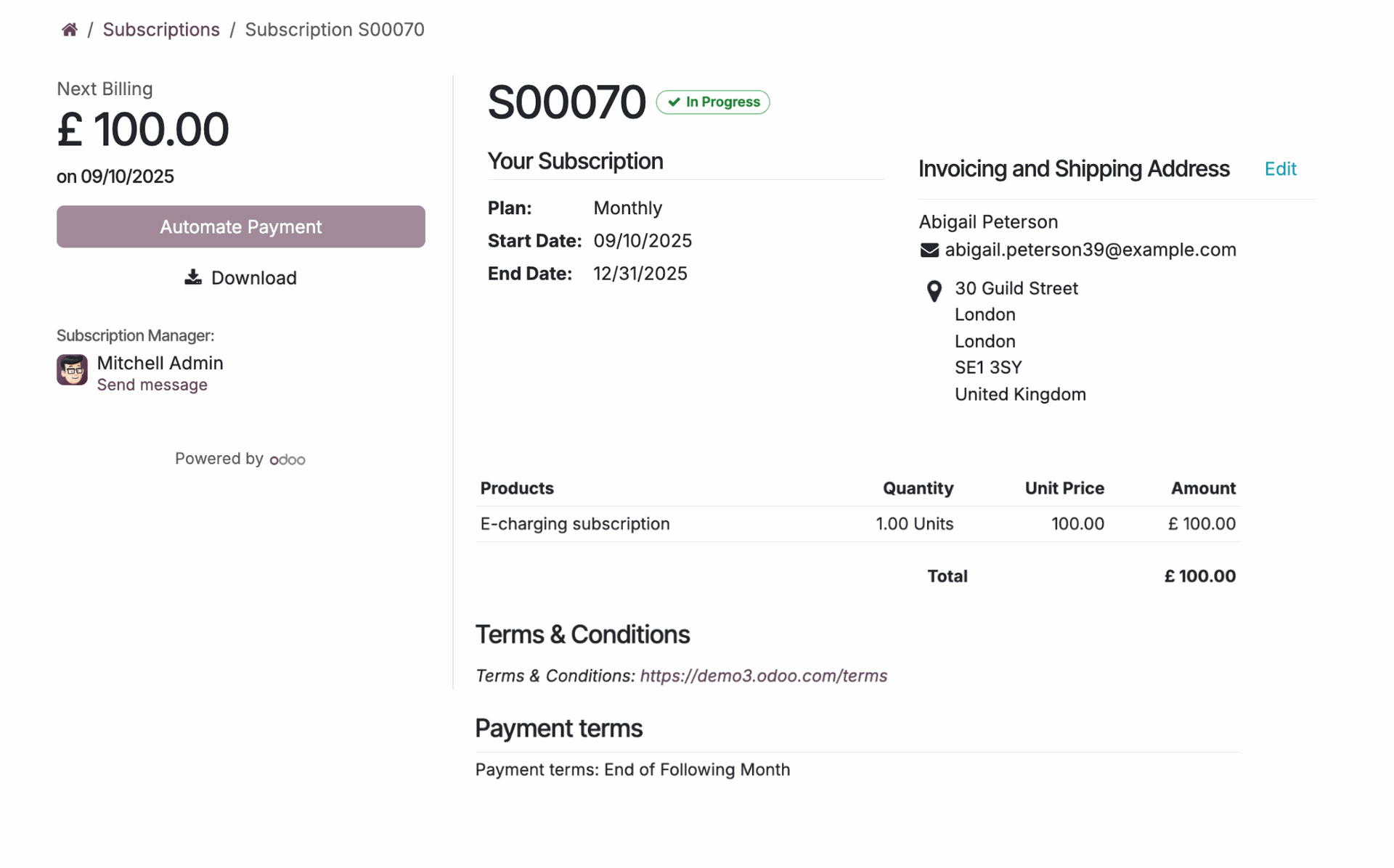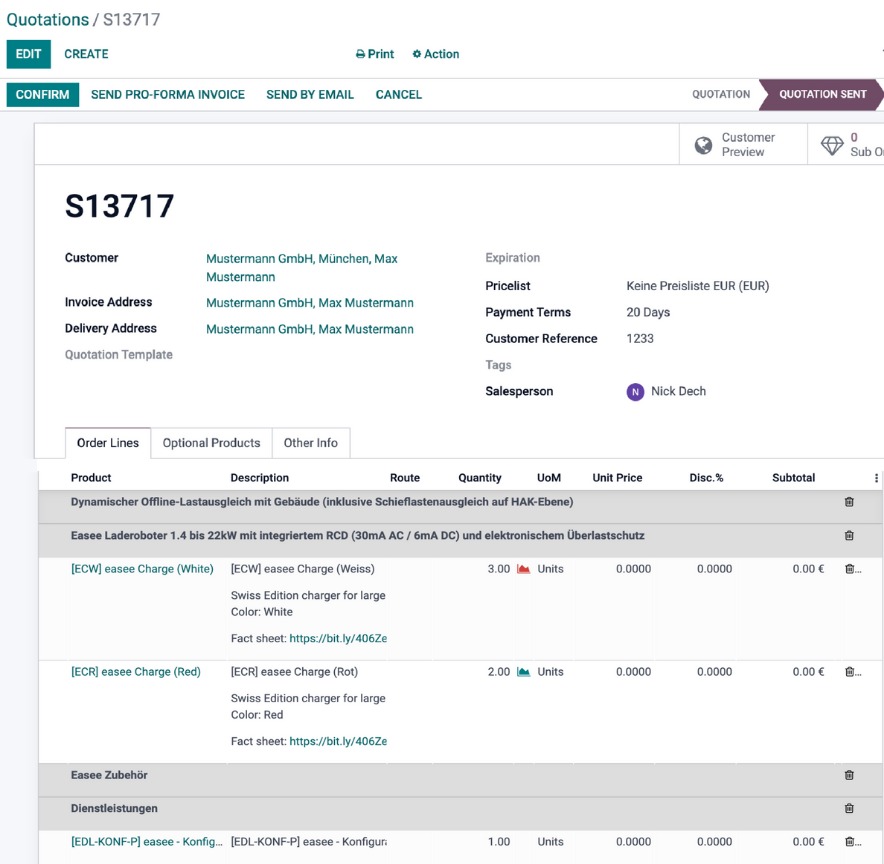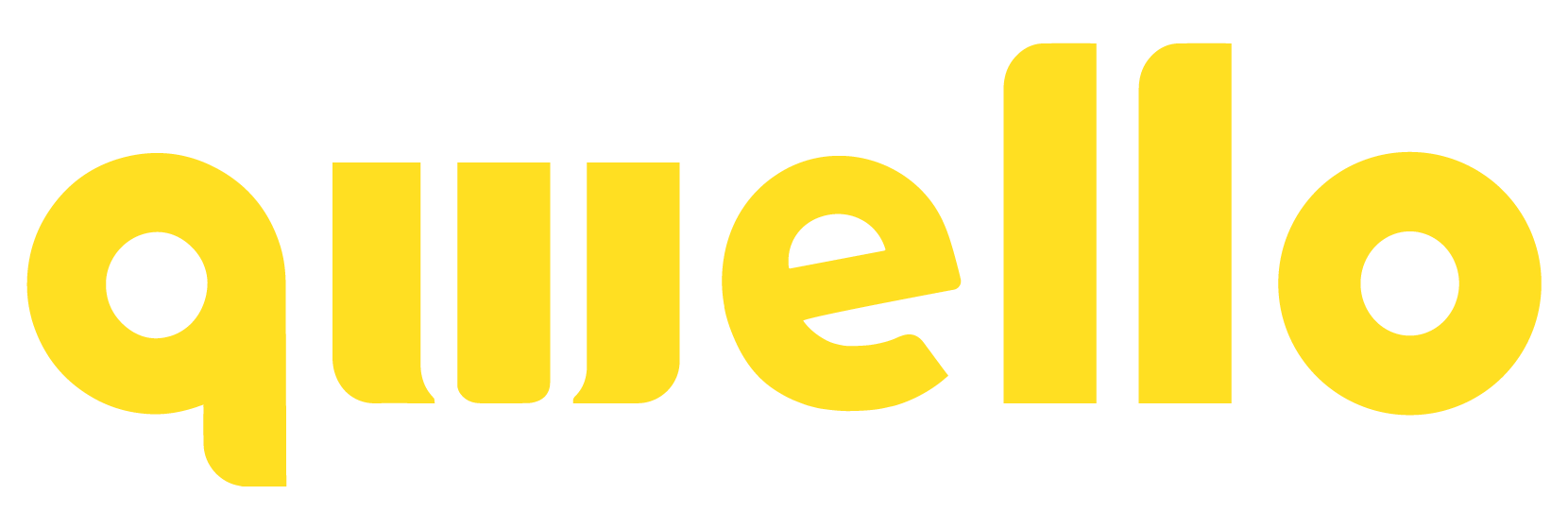Electric Vehicle (EV) companies face a unique set of challenges.
Their business models can vary widely: some manufacture hardware, others operate charging networks or focus on providing charging services and software. But they all deal with complex and specialised processes.
That might mean running production lines, managing installations through field service teams, or coordinating maintenance and hardware replacement. It may also mean integrating with industry-specific software.
Alongside that, EV companies still rely on standard business processes like managing clients, sales, and accounting processes.
Essentially, EV companies need to connect their specialised scattered processes with their core business areas, all under one system. Finding an ERP that adapts to those needs is a challenge in itself - but Odoo can do it with the right setup.
We’ve implemented Odoo for several EV businesses. In this article, we share how we’ve connected their processes to create a seamless environment for customers, operators, and internal teams alike.
Table of contents
EV companies struggle to find a niche-specific ERP
Odoo solves common challenges that EV businesses face
B2C: Handling complex subscription models for e-charging
B2B: Creating surveys for complex quotations to sell charging points
EV operations need to link production, quality & maintenance
Odoo supports the core business processes of an EV company
Some EV businesses are already using Odoo
EV companies struggle to find a niche-specific ERP
The idea behind an EV business is simple: plug in, charge, drive on.
But the reality behind the scenes is more complex and often disconnected.
Specific industry requirements mean that EV companies often struggle to find a system that can fit all their processes.
For example, some companies may use software to measure electricity consumed or stored over time. Others might need to track and maintain their products, be they charging points or rental vehicles.
Regardless of their specific operations, all EV companies need a system that links their niche demands with the rest of the business.
If they deal with hardware like charging ports, they need to connect to manufacturing to schedule maintenance and track spare parts.
If they manage energy supply, data has to link to sales and accounting, so customers are billed correctly based on usage.
In short, they need their equipment maintained, their customers supported, and their finances in order.
Odoo solves common challenges that EV businesses face
Odoo serves as a single point of truth for EV companies. Its modular design covers essentials like sales, accounting, and manufacturing, while its open-source nature makes it easy to adapt to and integrate with industry-specific demands.
See how real EV companies use Odoo to connect their unique requirements with day-to-day business and keep things running smoothly.
B2C: Handling complex subscription models for e-charging
In B2C, generally, an EV charging provider operates stations across the city, directly to the customer.
Customers can subscribe to a specific area or pay on a one-off basis whenever they need, and this creates a wide mix of billing scenarios.
Some users pay fixed fees, others only use the service occasionally, and all consumption data must be collected from external electricity software.

How a monthly subscription to an EV charging plan can look like after it’s sent to the customer in Odoo.
The challenge
This variety of subscription models makes billing more complex than a standard flat-rate setup.
To handle usage-based plans, the company needs to pull consumption data from a third-party electricity tracking tool.
At the same time, charging stations across the city can break or malfunction, which adds pressure on operations to monitor and service equipment quickly.
Managing all of this across disconnected systems creates gaps between subscription logic, usage tracking, and maintenance.
The company needs one platform that brings everything together, from billing models to usage data to financial records.
The Odoo solution
Odoo covers many of these needs out of the box, with integrated apps that handle billing, payments, and operations in one system:
- The Subscriptions app manages recurring contracts and different pricing models
- Sales and Accounting handle invoicing and payment tracking based on the subscriptions
- Manufacturing and Maintenance monitor charging points and trigger repairs when needed.
Since Odoo is open-source, it means that it also connects easily to external electricity usage software via API. This is critical to bill customers correctly.
Once the integration is in place, consumption data flows automatically into the Sales and Accounting processes, ensuring accurate, timely invoicing for every type of customer.
B2B: Creating surveys for complex quotations to sell charging points
For EV infrastructure providers on a B2B scale, selling charging points often requires gathering detailed technical information before creating a quote.
Each customer setup is different: some need specific charging ports, installation on-site or power capacity to meet government requirements.
This complexity turns quotations into a manual, time-intensive process.
To make this scalable, companies need a way to structure their gathering of pre-sales information and a way to tie it directly into their sales flow.
The challenge
Before even sending a quotation, teams need to collect highly specific data from prospects.
Without a system in place, this means back-and-forth emails, spreadsheets, or survey apps. This can lead to hours of manual entry just to prepare a single quote.
That was the case for our customer, simplee AG, a company offering EV charging infrastructure.
Before Odoo, their sales team was spending nearly 10 days each month on manual quotation prep.
They also struggled with conversion rates due to long turnaround times and disjointed processes.
The Odoo solution
Odoo brings together the key apps needed to automate complex quotations:
- The Survey app collects detailed technical input from customers (a survey link can be shared with customers via email or a landing page on the website)
- The Sales app generates quotations directly from the data collected in the surveys
- The Website app guides prospects through the process and lets them track their requests via a customer portal
- The CRM app helps sales teams to follow up on leads captured through the survey.
This is exactly what we implemented for our customer, simplee AG.

How a Sale Order looks for simplee AG, after integrating their entire survey-based quotation process in Odoo
Odoo in action
Customer input is collected in a structured way and flows straight into pre-filled quotations, with no need to manually transfer data. Since this implementation, simplee AG has:
- Saved 10 days of manual work per month
- Increased their sales conversion rate to 50%
- Created over 500 quotations since go-live.
Check the talk with our Head of Services and simplee AG, and see how we customised a solution with an OCA module.
EV operations need to link production, quality & maintenance
EV providers that manufacture and maintain their own charging hardware need to connect production processes with their products on the ground.
That means linking factory processes, quality checks, and repairs with industry-specific software that they may use.
The challenge
EV providers need full traceability from component sourcing to long-term product performance.
If a charging station malfunctions, the team needs to identify the root cause, whether it's a supplier issue, a specific component batch, or something else.
But without a connected system, production data, quality records, and maintenance workflows remain siloed.
This slows down investigation, delays repairs, and increases the risk of repeated failures.
The Odoo solution
Odoo brings together all the tools that EV companies need to connect production, quality, maintenance, and procurement in one system:
- Complex production support and traceability: Odoo supports complex, multi-level BOMs (bills of materials) for different charger types and production flows. Each component, semi-finished good or finished unit is assigned a serial or lot number, making it fully traceable across production, delivery, and long-term operation
- Quality checks: EV companies can define quality checks at any stage of the production process. Each result is logged and linked to the relevant batch or component. This enables root-cause analysis and helps teams detect recurring issues over time
- Procurement & replenishment of components: Component availability is managed through automated procurement rules and replenishment strategies. These can be based on lead times, minimum stock levels, or forecasted demand, making sure that production can continue without delays
- External integrations for immediate insights: Industry-specific software like Charge Point Management Systems can easily connect to Odoo via API. Insights or performance alerts from charging stations, like overheating or connection issues, are automatically matched to serial numbers and synced back to relevant production batches in Odoo
- Automatically triggered repairs: Maintenance and service actions can be triggered automatically based on incoming alerts or production issues. All maintenance work is tracked in connection with the affected product, which allows for preventive planning and full product lifecycle visibility
- Unified reporting & KPI tracking: Odoo helps teams track all their data from manufacturing, quality, maintenance, and procurement with standard reporting. Teams can monitor failure rates, supplier performance, or service frequency in every app, but they can also gather data in the Dashboards app for a greater overview. This makes it easier to improve both product quality and internal processes.
This setup gives EV companies full visibility and ensures that production, maintenance, and operations stay connected through the entire process.
Odoo in action
An EV company gets notified through their CPMS that one of their charging points keeps overheating.
The CPMS logs the issue, which is directly connected to the specific serial number of that charging point.
This information is directly transferred into the Maintenance app, as the CPMS has been integrated into Odoo via API.
Thanks to the CPMS integration, the EV company can trace that serial number back to the exact production batch in Odoo.
The company sees through the Manufacturing app that the charging point is using a specific batch of components that failed more often than others.
Through the Quality app, they can check if other units from the same batch are affected.
The Maintenance app lets them plan preventive maintenance and fix the issue at its source.
Odoo supports the core business processes of an EV company
Beyond customer-facing flows, EV providers often deal with supply chain challenges, scattered accounting processes, and ongoing service needs.
These are typical for manufacturing and maintenance-driven companies, and Odoo supports them through a fully integrated system.
Inventory
When charging stations or components are internally produced or ordered from suppliers, Odoo’s Inventory app tracks availability, reordering, and delivery timelines.
This supports both hardware sales and service-based models that rely on fast equipment replacement cycles.
Sales & CRM
Sales reps and service teams work from the same customer and project data. All interactions are stored centrally, whether a lead comes from a survey, subscription form, or manual contact.
This keeps B2B offers and B2C subscriptions tied to ongoing tasks or support issues.
Field Service
For companies offering installation or on-site maintenance, Odoo’s Field Service app helps schedule visits, assign technicians, and track completed work.
This ensures that B2C repairs and B2B installations are handled efficiently without needing a separate tool.
Accounting
Invoices can be triggered from subscriptions, quotations, or completed services, with full visibility into what’s been delivered.
Odoo also supports multi-company structures, which is useful if hardware production, sales, and service run under separate legal entities or in different countries.
Some EV businesses are already using Odoo
Odoo gives EV providers the flexibility to manage everything from subscriptions and quotations to stock, service, and finance, all in one place.
Some of our customers have made this shift to connect their specialised processes with standard operations in a single system.

simplee AG is an e‑mobility company based in Switzerland. It operates across Europe to simplify electric vehicle charging by delivering intelligent, future‑ready solutions.
They offer both AC and DC charging hardware and full project support from planning to billing and operation.

Qwello is an e-charging station company based in Munich, with locations across Europe.
They aim to make electric vehicle charging easier by building and running simple, efficient public charging stations.
Want to implement Odoo for your EV organisation?
Talk to our Odoo experts and unify your EV operations under one system.